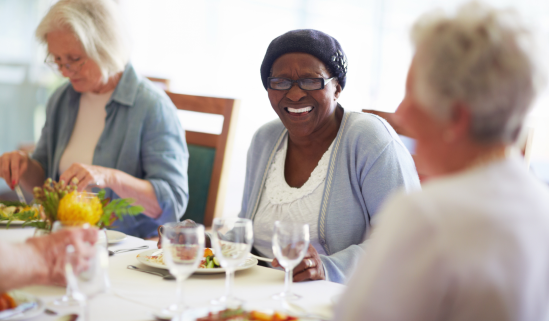As summer approaches, staying hydrated becomes even more important—especially for seniors. Older adults are at a higher risk of dehydration due to factors like medication side effects, chronic health conditions, and even cognitive decline. For those with Alzheimer’s or dementia, it can be easy to forget to drink enough water, leading to serious health issues. In fact, dehydration in seniors has been linked to higher risks of complications and even mortality.
As we prepare for the heat of summer, it’s crucial to start thinking about ways to stay cool and hydrated. Here are some tips to help seniors beat the heat and stay healthy as temperatures rise.
1. Prioritize Water Intake
It may seem like a no-brainer, but drinking enough water throughout the day is essential. Aim for at least 7 cups of fluids every 24 hours. If you or a loved one have trouble remembering to drink, set a timer or use a water bottle with hourly markers.
Limit your alcohol and caffeine intake, as they can increase dehydration. For those who find plain water boring, try infusing it with fruit like berries, citrus, or cucumber, or even herbs like basil or mint. This can make drinking water more enjoyable without adding sugar or artificial flavors.
2. Eat Water-Rich Foods
Hydration isn’t just about drinking water. Many fruits and vegetables contain high amounts of water and can help keep you hydrated. Watermelon, cucumber, oranges, and strawberries are great options. Even dairy products like yogurt and milk provide hydration.
Frozen fruit or homemade popsicles made from fruit juice or yogurt are delicious and hydrating snacks that also cool you off on hot days.
3. Stay Cool Indoors
Use blinds or curtains to block out the sun, which can reduce indoor heat by up to 77%, according to the Department of Energy. Fans and air conditioning can also help maintain a comfortable, cool temperature at home.
If your home lacks air conditioning, try creating a cross-breeze by opening windows and using fans. Make sure to avoid excessive heat exposure during the hottest part of the day, usually from 10 AM to 4 PM.
4. Take Cool Showers or Baths
A cool shower or bath is one of the quickest ways to lower your body temperature. If you’re not in the mood for a full shower, try placing a cool washcloth on your forehead, neck, or wrists. These areas of the body are great for cooling down quickly.
5. Hydrate with Electrolytes
While water is essential, it’s also important to replenish lost electrolytes, especially after sweating. Try drinking coconut water or electrolyte-enriched drinks that don’t have added sugar. In some cases, seniors may need to drink a mix of water and an electrolyte solution to maintain proper fluid balance.
Recognizing Dehydration in Seniors
Whether it’s due to forgetfulness or dementia, many older adults don’t know they need to drink more water until early signs of dehydration begin. Monitor your loved one and look for these common signs and symptoms of dehydration. These include:
- Extreme thirst or dry mouth
- Dry or wrinkled skin
- Fatigue or confusion
- Sunken eyes
- Rapid heartbeat or low blood pressure
- Muscle cramps
- Dizziness or lightheadedness
- Dark-colored urine
If you or someone you love notice any of these signs, especially if they’re persistent, encourage your loved one to drink water and call a healthcare professional if needed. In severe cases, dehydration can lead to heat exhaustion, heat stroke, or kidney problems, so it’s crucial to act quickly.
Final Thoughts
The summer heat can pose a serious risk to seniors, especially if dehydration is not properly managed. By following these hydration tips and staying aware of the signs of dehydration, seniors can reduce their risk of heat-related illnesses and stay healthy all season long.
If you or a loved one are ready to join one of our communities, get connected to a HMG specialist by subscribing to our email listing.

